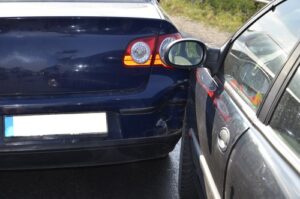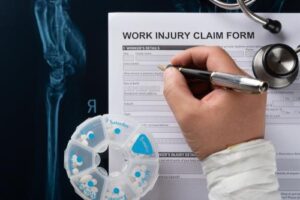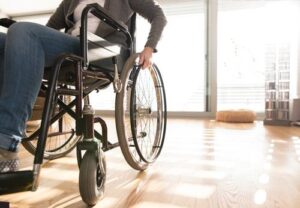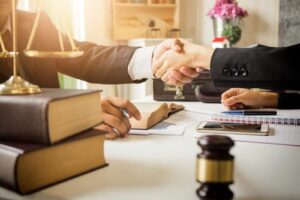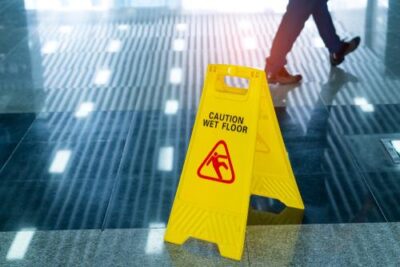
Ordering from Bojangles’ in Georgia should be quick and delicious—but for some people, a trip to one of these restaurants can end in pain. Slip and fall accidents can happen at any time, and the store may be liable. Thankfully, there are Bojangles’ slip and fall accident and injury lawyers in Georgia who can help you seek compensation.
At John Foy & Associates, we know what it takes to build a successful slip and fall claim after an accident in Bojangles’ or another eatery in Georgia. We have more than 20 years of experience working for injury victims, and we can help you, too. Call us today at (404) 400-4000 or contact us online and we’ll get started with a FREE consultation.
What to Know About Bojangles’ and Slip and Fall Accidents in Georgia
Bojangles’ is a fast-food restaurant chain that was founded in 1977 in Charlotte, North Carolina. By 2014, they had opened their 600th restaurant. They have many locations throughout Georgia, including in Athens, Atlanta, Augusta, Dawsonville, Lithia Springs, Macon, Newnan, and Savannah.
Bojangles’ menu items include seasoned fried chicken, biscuits, sandwiches, salads, and more. They serve mostly the Southern states.
If you were hurt in a slip and fall accident at Bojangles’, it’s a good idea to contact an experienced injury lawyer as soon as you can. If the store’s employees were at fault for your accident, the store may be liable for your damages.
Get the strong arm
Damages You May Recover in a Bojangles’ Slip and Fall Accident Claim
“Damages” refer to any losses you experience because of your personal injury accident. In Georgia, the negligent party in an accident is responsible for the damages. If your accident resulted from a restaurant owner’s, manager’s, or employee’s negligence, you have the right to file a personal injury claim with the restaurant’s insurance company for compensation of your damages.
There are two types of personal injury damages:
- Special damages, or monetary losses
- General damages, or non-monetary losses
Here are some of the most common slip and fall accident damages that we see (and that you can include in your claim).
Medical Costs
Medical expenses typically make up the largest part of a slip and fall claim. Even seemingly minor injuries can lead to serious medical costs from:
- Medical bills
- Doctor co-pays
- Hospital stays
- Prescription medications
- Physical therapy
- Travel to and from medical appointments
- Future medical costs
It’s very important that you keep track of all medical bills, doctor notes, receipts from prescription medications, and other evidence of your costs. You will need to provide proof of your damages in your injury claim.
If a slip and fall victim dies as a result of their slip and fall accident, their dependents may also be able to file a wrongful death claim for the deceased’s medical bills and funeral and burial costs.
Lost Wages
A slip and fall accident often forces you to miss work time as you get treatment for your injuries. This is known as “lost wages.” You may also be able to recover any lost earning capacity that you suffer because of your injuries.
To prove lost wages, you may need to provide previous pay stubs to show what you were earning before the accident.
Property Damage
If any personal property, such as a watch or other jewelry, was damaged as a result of your slip and fall accident, you can include that in your claim. This is more common in auto accident cases, but it can apply to slips and falls, too.
Pain and Suffering
Unlike the above damages that are monetary losses, pain and suffering damages fall under non-monetary losses. These damages cannot be easily calculated and depend on your unique circumstances.
Damages for pain and suffering may include:
- Emotional distress
- Physical pain
- Fear, humiliation, or frustration
- Anxiety or depression
- Emotional trauma
- Loss of enjoyment of life
An experienced slip and fall accident lawyer is required to accurately account for pain and suffering damages since they cannot be calculated or demonstrated through a specific dollar amount.
Punitive Damages
There is a third type of damages known as punitive damages. However, these are rare in slip and fall accident cases. Punitive damages are meant to punish the wrongdoer and prevent similar behavior in the future more than they are designed to compensate the injury victim.
Punitive damages are awarded when the at-fault party has demonstrated willful, malicious, or wanton behavior. If you suspect this type of behavior was involved in your accident, speak with an experienced slip and fall lawyer right away.
Ways Employees Might Be Negligent in Slip and Fall Accidents at Bojangles’
Employees have a duty to keep the premises safe for all customers. To prevent slip and fall accidents, they must regularly check for and clean up potential hazards. If they are not doing this, it’s a form of negligence and becomes a liability concern.
Employees may be negligent if they do not watch for and clean up hazards like:
- Wet, slippery floors
- Greasy floors
- Spilled food or drink items
- Poor lighting
- Uneven flooring, rugs, or carpeting
- Broken or unmarked steps
If a hazard or dangerous condition cannot be cleaned up immediately, employees should work to warn customers and block off or prevent access to the hazard.
The restaurant or the insurance company may try to say that you hold a degree of responsibility in your slip and fall. Your injury lawyer will investigate the facts. If it turns out you may have been partially negligent in the accident, you can typically still seek compensation through Georgia’s modified comparative negligence laws found under Georgia Code section 51-12-33.
Talk to a Bojangles’ Slip and Fall Accident and Injury Lawyer for Free Today
At John Foy & Associates, we can help you seek the fullest compensation possible for your slip and fall accident damages. Don’t assume you were at fault or don’t have a case until after you’ve spoken to one of our slip and fall lawyers. We’ve been helping injury victims win what they deserve for 20 plus years—and we can help you, too.
To get started with a FREE consultation, call us at (404) 400-4000 or contact us online today.
404-400-4000 or complete a Free Case Evaluation form

